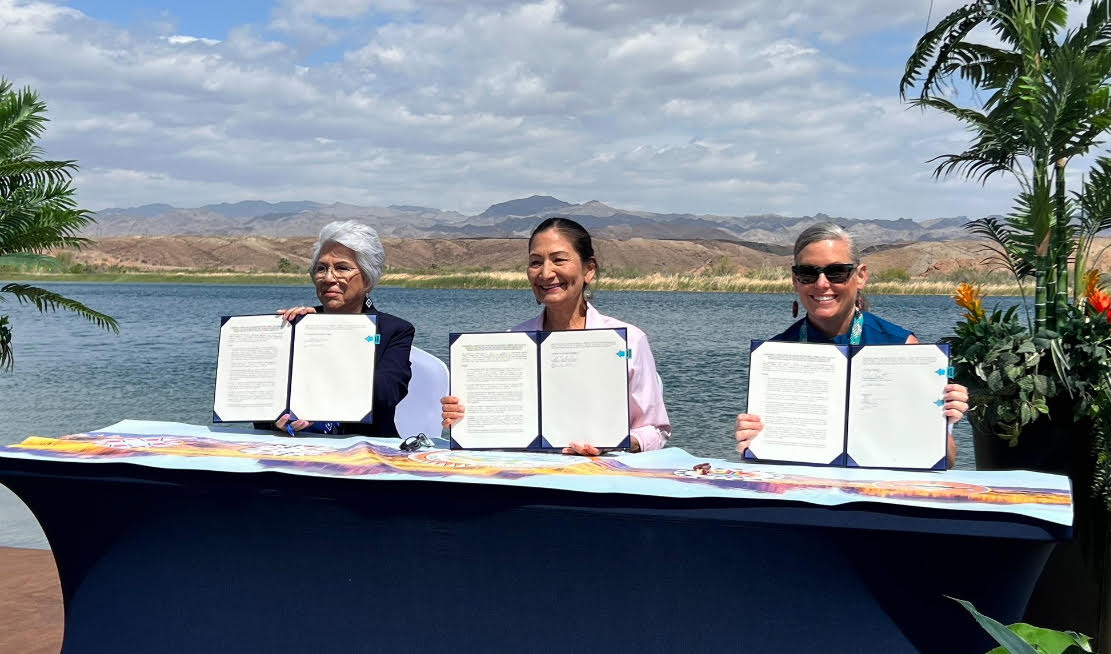
- Details
- By Native News Online Staff
U.S. Secretary of the Interior Deb Haaland (Laguna Pueblo), Assistant Secretary for Indian Affairs Bryan Newland (Bay Mills Indian Community), and Bureau of Reclamation Commissioner Camille Calimlim Touton on Friday traveled to the Colorado River Indian Tribes (CRIT) community to commemorate a historic water rights agreement between the Department, CRIT and the state of Arizona.
The agreement will – for the first time – give the tribes the ability to lease, exchange or store a portion of its Arizona Colorado River water entitlement. The community includes almost 300,000 acres of land, with the river serving as the focal point and lifeblood of the area.
The Colorado River Indian Tribes Water Resiliency Act of 2022 – which paved the way for this agreement – is the product of many years of diligent negotiations among the tribes, the state, and non-Indian water users and reflects the federal government’s commitment to tribal self-determination and tribal sovereignty.
The visit underscored the Department’s commitment to strengthening Indian Country with significant resources through President Biden’s Investing in America agenda, which provides $2.5 billion to implement the Indian Water Rights Settlement Completion Fund, which is delivering long-promised water resources to tribes, certainty to their non-Indian neighbors, and a solid foundation for future economic development for entire communities dependent on common water resources.
More Stories Like This
Native News Weekly (August 25, 2024): D.C. BriefsNavajo Nation Secures $285 Million in Federal Broadband Funding to Connect Thousands of Homes
Oral History Project Announces 18th Stop in Denver, Colorado: NABS Continues Preserving Critical Stories Across Indian Countr
Next on Native Bidaské: Protecting Legacy Before It’s Forgotten with the National Native American Hall of Fame
Zuni Youth Enrichment Project Wins $25,000 National Award to Strengthen Long-Term Support for Zuni Youth
Help us defend tribal sovereignty.
At Native News Online, our mission is rooted in telling the stories that strengthen sovereignty and uplift Indigenous voices — not just at year’s end, but every single day.
Because of your generosity last year, we were able to keep our reporters on the ground in tribal communities, at national gatherings and in the halls of Congress — covering the issues that matter most to Indian Country: sovereignty, culture, education, health and economic opportunity.
That support sustained us through a tough year in 2025. Now, as we look to the year ahead, we need your help right now to ensure warrior journalism remains strong — reporting that defends tribal sovereignty, amplifies Native truth, and holds power accountable.
 The stakes couldn't be higher. Your support keeps Native voices heard, Native stories told and Native sovereignty defended.
The stakes couldn't be higher. Your support keeps Native voices heard, Native stories told and Native sovereignty defended.
Stand with Warrior Journalism today.
Levi Rickert (Potawatomi), Editor & Publisher


